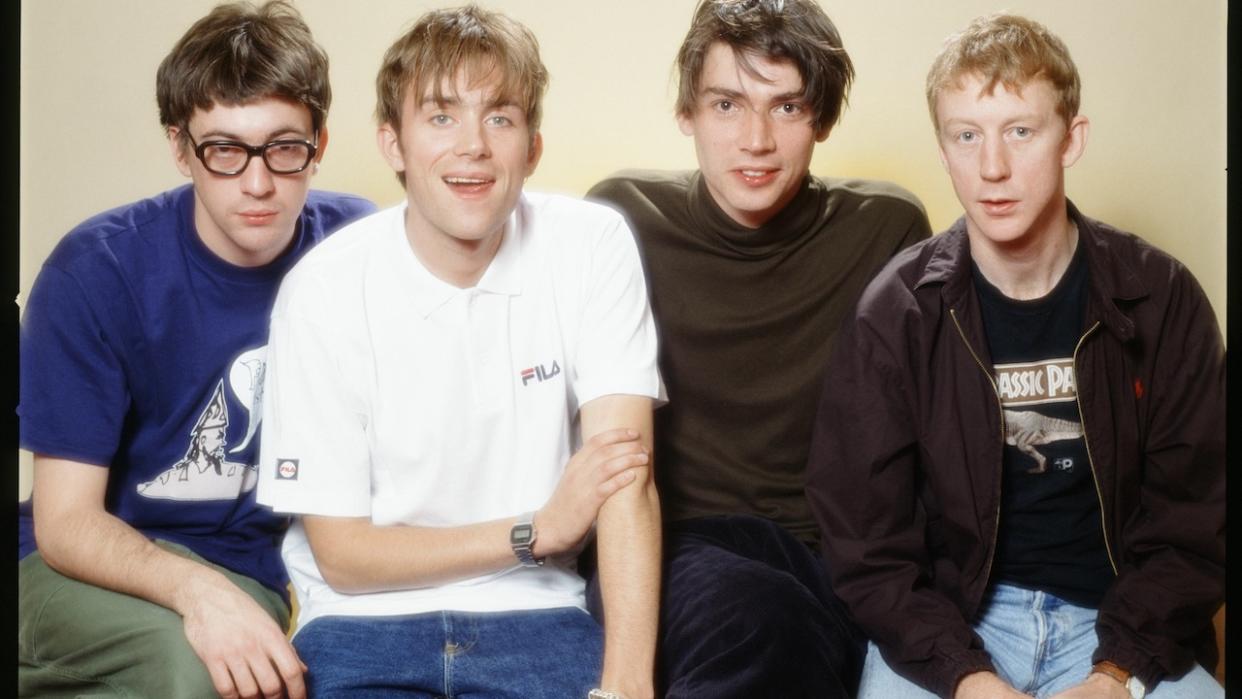How Blur boldly reinvented themselves, and saved their souls, with 1997’s self-titled album

- Oops!Something went wrong.Please try again later.
In July, Blur will play their biggest UK shows yet as they head to Wembley Stadium for two nights. The '90s Britpop icons have come together to celebrate 30 years of their era-defining record Parklife, but whilst that record took the band to the next level and made them stars, their longevity (albeit including a hiatus or two) can be put down to the reinvention they undertook on 1997’s self-titled effort.
Everyone had started to tire a little of the band’s tales of British mundanity by the time they released 1995’s The Great Escape (lead single Country House was a low point), but none more so than the band themselves. It forced Damon Albarn, the band’s chief songwriter, to take a long hard look in the mirror and work out where they should go next. With some foresight - “Cool Britannia” was about to reach its event horizon – they shifted their gaze onto the US and the experimental, art-rock groups such as Pavement emerging from there. It prompted a complete rethink in their sound.
“Looking back on The Great Escape, I realise it’s more like a musical,” Albarn told [now long defunct] UK music magazine Select in 1997. “It would have made a great West End thing.”
It was a reinvention that saved Blur – momentarily anyway. The self-titled record contained both some of their catchiest tunes yet - the serrated guitar-pop classic Beetlebum, written about Albarn's experiences with heroin, the punky free-for-all Song 2 - but also ventured into experimental territory that whisked away any thoughts of them as some mockney 'ava banana' novelty band.
Of particular inspiration was Pavement frontman Stephen Malkmus, whom Albarn became friends with and played host to during its creation. “I’ve always had a suspicion we would get on. Intuitively and through listening to his lyrics,” Albarn opined. “He was someone I could relate to immediately.”
Despite fears from their record label about their Britpop fan-base abandoning them en masse, Blur was both a commercial and artistic triumph: the album and lead single Beetlebum topped the UK charts, while Song 2 connected with MTV and radio in America and brought the band to the attention of music fans who had precisely zero interest in Britpop, making the album the quartet's best-selling release in the US.
The success of this stylistic shift prompted Blur to go further out there with their next record 13, whilst the artistic clean slate would also prompt Albarn to form his mega-successful “virtual band” Gorillaz. None of those diversions, you feel, would’ve been possible without Blur, the album.

